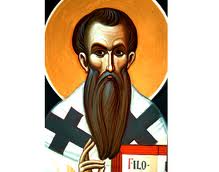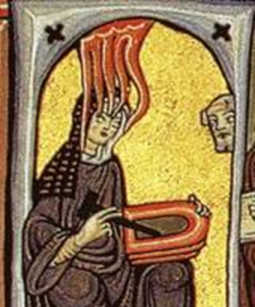 Part 2 of the life of Basil the Great
Part 2 of the life of Basil the Great
When a sharp famine arose, Basil provided for the destitute out of offerings the rich gave. He distributed bread in person among them, waited upon them at table with an apron wrapped around him and afterwards, washed their feet.
In AD 370, after being appointed Bishop of Caesarea, Basil founded a large complex of hospitals and hostels known as the Basiliad or Ptochoptopheion (New Town). Here the poor, the ill, orphans and old people were able to receive food, shelter, and medical care free of charge and industrial training for the unskilled was given. Its success resulted in other hospitals in Constantinople and Alexandra being built on similar lines. Basil himself lived in a monastic community at the heart of the Basiliad. The Basiliad itself was run by monks and nuns as well as lay people.
After an earthquake Basil worked for days digging through the rubble in order to save those who were trapped; he urged everyone around to share what food they had and organised food to be planted so people would not starve.
Basil encouraged the poor to help those worse off. “Give your last loaf to the beggar at your door,” he urged, “and trust in God’s goodness.”
In AD 378 as he lay dying, the whole city gathered about the door and when he died (on 1 January AD 379, aged 51) huge numbers attended his funeral. Even pagans and Jews wept with the Christians, one commentator noted, lamenting the death of a common father to all.
Basil wrote that choosing the gift of celibacy would greatly help people in their quest to share the very nature of God Himself. Celibacy, he said, is not merely about abstaining from sex. The celibate gifting should shine through the celibate’s “whole life, conduct and moral character.” Their “every action” must display the celibate way they have chosen. He describes it as “the way of angels” that goes beyond the limitations of ordinary human nature … and when free of marriage they may “not to be distracted by any created beauty, but to be constantly intent upon the divine countenance.”
Oriental monks still follow the rule Basil wrote over sixteen hundred years ago and he is known as father of Eastern monastic communities. He was a man who ‘belonged’ in a unique sense to the poor. If only more of us today would listen to his advice : “If we all took only what was necessary to satisfy our own needs, giving the rest to those who lack, no one would be rich, no one would be poor, and no one would be in need.”















 Jesus Army
Jesus Army Community
Community Real and Wild
Real and Wild